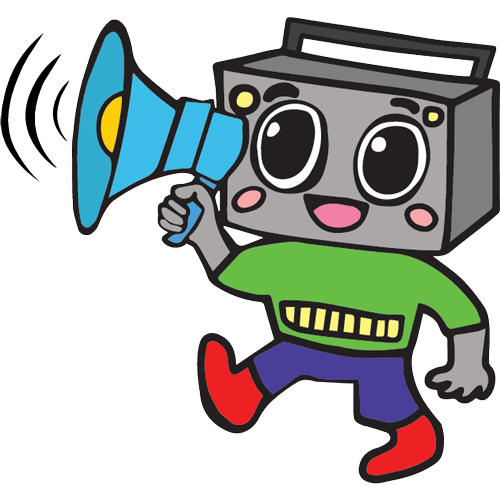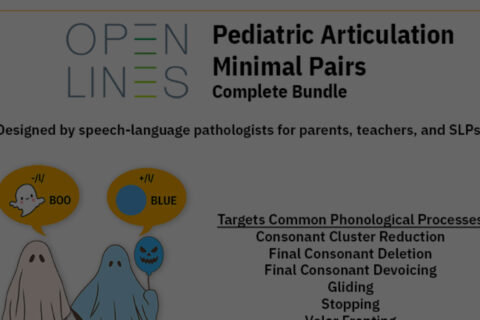How Long Does It Take to Recover My Speech After a Stroke?
The sudden and unexpected event of a stroke along with the often dramatic life changes that follow can feel overwhelming to many. One of the most distressing challenges that many stroke survivors face is impaired speech or communication. Difficulty expressing oneself, understanding others, and being misunderstood is deeply troubling and exhausting. The good news is, no matter what stage you’re at in your recovery journey, communication gains can be made! It’s never too late to start working on your speech and communication skills. An individualized plan of action designed by a licensed speech-language pathologist can help you meet your goals and experience relief no matter what kind of communication or swallowing difficulties you are experiencing. In this blog post, we will discuss how you can expect your speech to improve even if you had a stroke over a year ago.
What is a Stroke?
A stroke occurs when there is an interruption in the blood supply to the brain. When this occurs in the regions of the brain responsible for speech and language functions it can impact speech, language, voice, reading, and writing as well cognitive-linguistic skills such as memory and attention.
What Are the Types of Stroke?
The two main types of stroke are ischemic and hemorrhagic strokes. Ischemic strokes occur when a blood clot blocks a blood vessel in the brain. Hemorrhagic strokes occur when a blood vessel in the brain ruptures, causing bleeding in the brain.
What Are the Symptoms of a Stroke?
The symptoms of a stroke can vary depending on the type of severity of the stroke and the area of the brain affected. The most common symptoms include:
- Sudden weakness or numbness in the face, arm, or leg, especially on one side of the body
- Sudden confusion or trouble speaking or understanding
- Sudden trouble seeing in one or both eyes
- Sudden trouble walking, dizziness, loss of balance, or coordination
- A sudden severe headache with no known cause
It’s important to seek medical attention immediately if you or someone you know is experiencing any of these symptoms.
What to Expect After a Stroke: Possible Physical and Cognitive Effects
The physical and cognitive effects of a stroke depend on the area of the brain affected. Some of the physical effects include paralysis, weakness, or apraxia in oral and facial structures required for speaking. Cognitive effects can include difficulty with memory, attention, and problem-solving. Communication and speech can also be affected, and you may experience difficulty with speaking and finding the words you want to say, understanding others, reading or expressing yourself through writing.
How Long Will My Speech Be Impaired After a Stroke?
The duration of communication impairments varies from person to person, however, almost everyone will experience improvements over time with proper care and rehabilitation. Speech and language are affected following a stroke when the areas of the brain responsible for language functions have been impacted. When a person has difficulty with speaking, understanding information, reading, or writing after a stroke, the condition is termed aphasia.
Fortunately, aphasia treatments have been well-researched and there are a number of effective, evidence-based treatment options to ensure you or loved one make positive gains towards recovery as quickly as possible. Research indicates that people living with neurological conditions such as aphasia, experience the greatest therapeutic gains when they receive intensive training of specific exercises that target precise areas of impacted speech, language, or swallowing function. Speech and language interventions work because they drive activity-dependent neuroplasticity. This means the brain is able to adapt and restructure as a result of specific exercises for improved thinking, communication, and swallowing and increased confidence and life participation.
Like learning anything in life: intensity and repetition matters! Working with a licensed speech-language pathologist can ensure you or loved one get the personalized and targeted interventions you need to enhance communication success and regain independence. Patience, perseverance, and optimism are key to maintaining a positive outlook throughout the recovery process.
Aphasia Speech Therapy
Aphasia, a language disorder caused by a neurological event to the brain, is a common condition among stroke survivors. It can affect a person’s ability to speak, understand language, read, or write. Fortunately, speech therapy is effective in treating and managing symptoms of aphasia. The goal of aphasia speech therapy is to help patients improve their ability to think, communicate, and swallow . Your licensed speech-language pathologist will perform a comprehensive evaluation to better understand your areas of strength and determine the nature of your communication or swallowing difficulties. Using a combination of drill-based exercises and functional activities that mimic your day-to-day experiences, stroke survivors can expect to experience improved language, cognitive-linguistic and swallowing skills, relief, and regain a sense of independence and confidence. If you or someone you know is experiencing aphasia after a stroke, don’t hesitate to seek out a qualified speech therapist for help. The sooner a person receives support, the sooner they will experience gains and relief.
How the Team at Open Lines Speech and Communication in New York Can Help
At Open Lines Speech and Communication P.C. in New York and Los Angeles, we understand how challenging it can be to recover from a stroke. Our team of certified speech-language pathologists has years of experience helping survivors improve their speech and communication skills. We believe that a holistic, care-focus intervention approach that integrates the highest standards of evidence-based therapy techniques with activities that are relevant to a person’s daily life, is the idea way to treat language processing, speech production, swallowing, and cognitive-linguistic skills. Our customized treatment plans are tailored to your individual needs and goals, and we work with you every step of the way to help you achieve the best possible outcome.
Contact Open Lines® Speech and Communication Today!
Having a stroke can be a life-changing event, but it doesn’t mean you have to live with impaired speech and communication skills forever. With the right treatment and support, you can expect your speech to improve even if you had a stroke over a year ago.
If you’re struggling with communication difficulties, it’s time to turn to Open Lines®. Contact us via phone (212-430-6800), email [email protected], or by filling out our convenient contact form. Improve your communication skills and unlock your potential with Open Lines® Speech and Communication in New York today!
Get in Touch With Open Lines®















